The lunar calendar, or the calendar based on moon phases, is an important calendar in Chinese culture. People widely use it for traditional activities such as weddings and funerals.
It also guides the daily life of the people of China. People believe the lunar calendar is more accurate than the solar calendar and it indicates a particular month’s new moon and full moon phases. People cannot overstate the significance of the lunar calendar, which is an important part of Chinese culture.
This blog will discuss the lunar calendar and its relevance in Chinese culture. We will cover significant dates in the lunar calendar, what happens during the Lunar New Year festival in China, and why it’s so important to the culture. Let’s get into it.
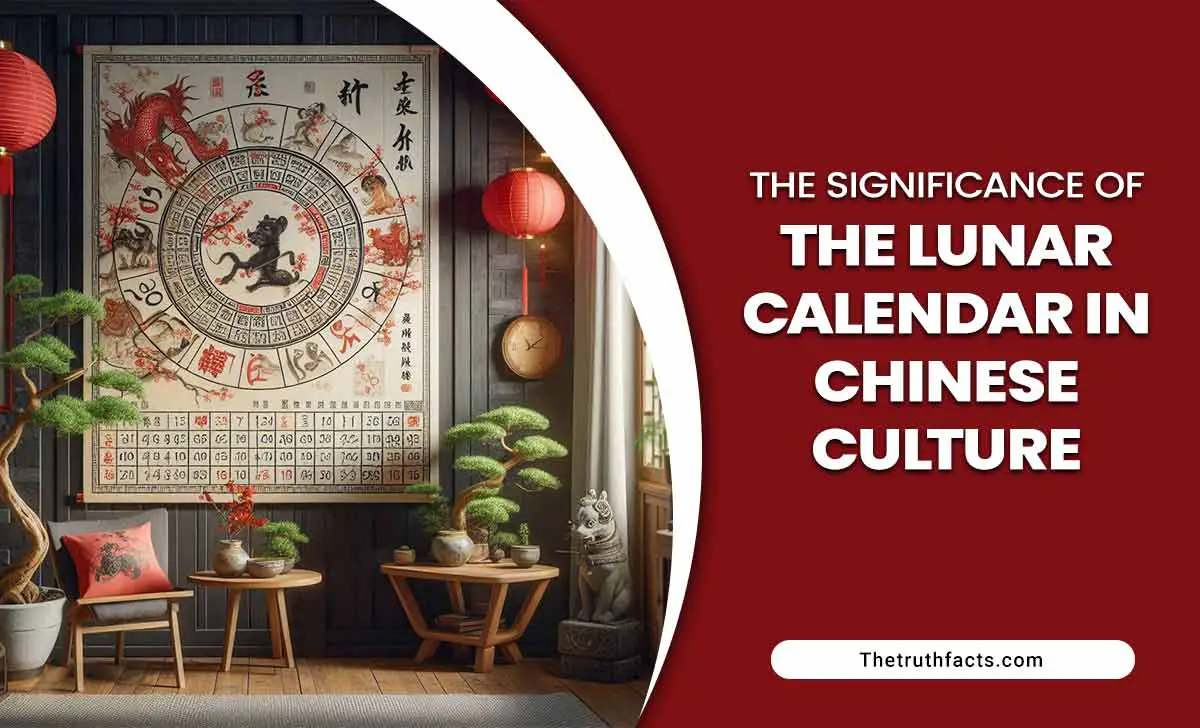
The Lunar Calendar In Chinese Culture
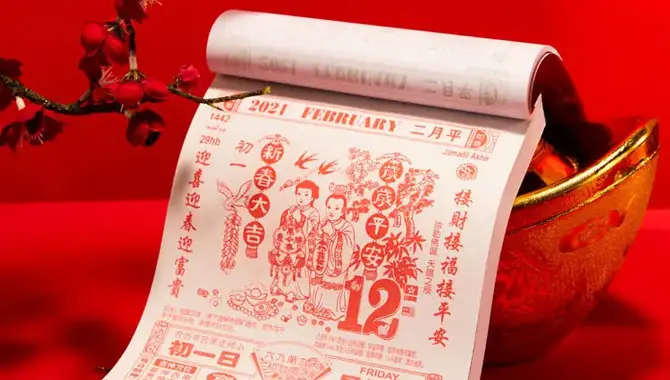
The lunar calendar is an important part of Chinese culture. People use the lunar calendar to reflect the changing phases of the moon, as well as guide festivals and ceremonies. People also use the lunar calendar to predict future events, such as the spring festival and Chinese New Year.
A lunar calendar is an essential tool for farmers and fishermen to know when to plant and fish, as it helps with the timing of seasonal crops and fish catches. Traditional Chinese medicine practitioners also use it to calculate the time of year for traditional medicine rituals. The lunar calendar is a vital component of traditional Chinese culture and can help give insight into the country’s past, present, and future.
How The Lunar Calendar Is Used In Chinese Culture
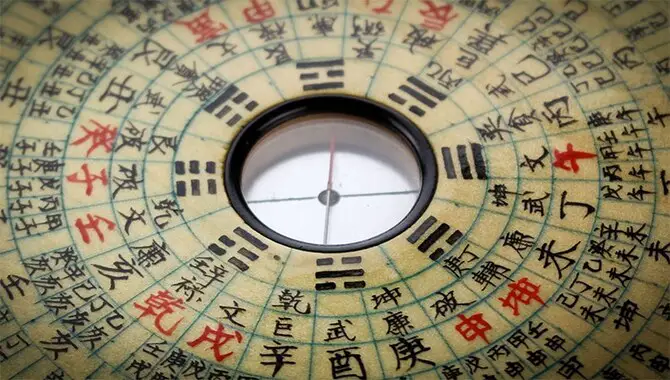
The lunar calendar is an important part of Chinese culture and tradition. People use the lunar calendar to plan religious ceremonies and festivals, such as the Chinese New Year and the Mid-Autumn Festival. People use the lunar calendar to determine the dates for new year celebrations.
As mentioned above, the lunar calendar also plays an important role in determining agricultural activities. For instance, it decides when to plant and harvest crops. The lunar calendar has been integral to Chinese culture for thousands of years. Most of the traditional practices follow the lunar calendar.
Significant Dates In The Lunar Calendar
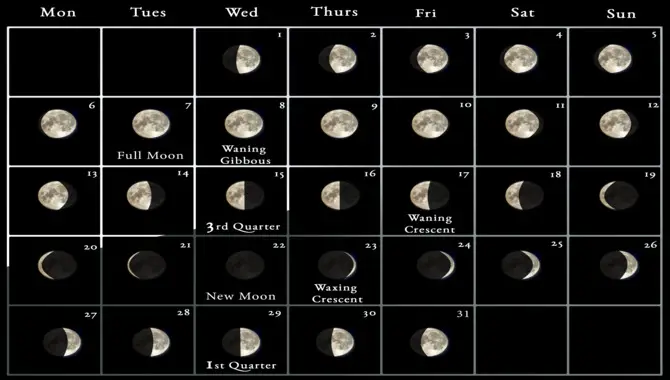
The first day of the lunar month is the most important in the lunar calendar for the Chinese. This day marks the beginning of a new lunar month and is traditionally a day of new beginnings, hopes, and opportunities. Many people celebrate this day by holding major festivals and ceremonies. The lunar calendar has 12 months, with 29 days in each month. Each month begins with the same moon cycle and has the same amount of days as the previous month. The moon cycle lasts 29.5 days, equivalent to one lunation or year.
The Chinese zodiac is based on the lunar calendar. One or more characters from the Chinese alphabet represent each year’s associated animal sign. Individuals’ personalities in terms of their characteristics and behaviors are described using these characters that represent the personality traits of an associated animal.
Farmers usually adjust their farming practices to suit a particular month of the lunar calendar in terms of agriculture. For example, farmers may adjust planting schedules to ensure crops receive sufficient sunlight during solar prominence.
What Happens During The Lunar New Year In China?
The Lunar New Year is a time of reflection and renewal for many people worldwide, but it holds special significance for the Chinese. The lunar calendar year is based on the moon’s cycle, and the year of the lunar calendar is different from that of the solar calendar. The lunar calendar year begins with the first day of the new moon, which marks the start of a new year. It is a time to honor ancestors and celebrate the new year.
Special rituals are performed during the Lunar New Year to ensure a good year ahead. Families gather together to eat feasts and exchange gifts. They may also participate in lanterns parade, lion dance, or dragon boat race. Many traditions surrounding the Lunar New Year are unique to China, so if you want to experience this festival in its full glory, you should visit!
Why Is The Lunar Calendar Important To Chinese Culture?
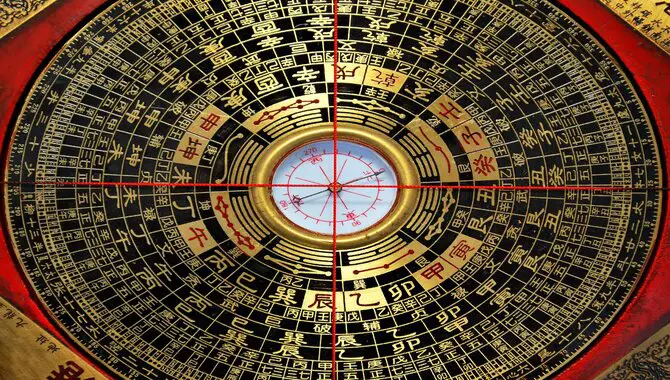
The lunar calendar is a vital part of the culture of the people of China. And, The lunar calendar is closely associated with Chinese traditions and customs. Also, The lunar calendar plays an important role in the festivals and ceremonies of the Chinese community. The lunar calendar is also used to determine the timing of important events, such as childbirth.
The lunar calendar helps farmers to plan agricultural activities and crops accordingly. In the farming community, it is essential to know when to sow seeds and harvest crops for maximum yield. Hence knowing the moon’s phases helps farmers understand the agricultural cycles.
The lunar calendar has also inspired artists and writers to create new art and literature. Millions of creative ideas come to life by following the moon’s cycle as a guideline.
What Are The Main Events Celebrated On The Lunar Calendar?
The lunar calendar is an important part of Chinese culture and heritage. The lunar calendar determines the year, month, day of the week, and aspect of the moon. Many traditional Chinese ceremonies are based on the lunar calendar, such as Mid-Autumn Festival and the Spring Festival.
The lunar calendar also plays a significant role in the agricultural cycle by determining when to plant and harvest crops. People worldwide celebrate the Lunar New Year as it marks the beginning of a new year. And is also a time for families and friends to get together and celebrate the year past.
The lunar calendar is an important part of the Chinese agricultural life cycle as it determines when to plant crops and fertilize them. It also helps farmers know when to water their crops, harvest them, or do other farm chores related to the lunar cycle.
Countries with access to solar power, such as China, use the solar calendar. However, for most of its history, China has used the lunar calendar for agricultural purposes and religious celebrations.
Conclusion
The lunar calendar is an essential part of the culture of China, as it’s been used for centuries. The calendar is based on the moon and the solar year, which explains the varying lengths of the month to month. It’s a day-based calendar that alternates between 29 and 30 days, depending upon the moon cycle.
Although similar to the solar calendar in terms of seasons, the lunar calendar has a few variations, such as new year celebrations that are held every year and holidays that occur more often. This calendar guides people through the year and helps them keep track of traditional farming activities.
Frequently Asked Questions
1.What Is The Meaning Of The Chinese Lunar Calendar?
Ans: The Chinese lunar calendar is an important part of Chinese culture. We use it to determine the days of the week, the months, and the years. The lunar calendar has a different name in each region of China, but it’s all based on the moon’s cycles.
2.Why Do People Follow The Lunar Calendar?
Ans: Peworldwideworld follows the lunar calendar because it reflects the changing cycles of nature. People use the lunar calendar to organize their lives and to plan events like Chinese New Year.
3.What Is The Lunar Calendar In Chinese Culture?
Ans: The lunar calendar is an important part of Chinese culture that determines the dates for festivals, birthdays, and other events. We see the moon’s cycles as a reflection of the cycles of life and nature, and base the lunar calendar on them.
4.What Is Special About The Chinese Calendar?
Ans: The Chinese lunar calendar is an important tradition in Chinese culture plans plan various events, such as weddings, funerals, and holidays. We see the moon’s cycles as a reflection of the cycles of life and nature, and we base the lunar calendar on them.
5.What Are The Benefits Of Following The Lunar Calendar?
Ans: Following the lunar calendar has many benefits, one of which is its importance in Chinese culture. The lunar calendar is used to determine various festivals and holidays, as well as the growth of plants and animals. It is also used to track the phases of the moon.

I’m a writer and blogger who loves to talk about entertainment, culture, and relationships. I love to share my thoughts and insights on these topics, and I’m always looking for new ways to engage with my readers. I’m also a big fan of learning new things, so I’m always exploring new areas of interest.
